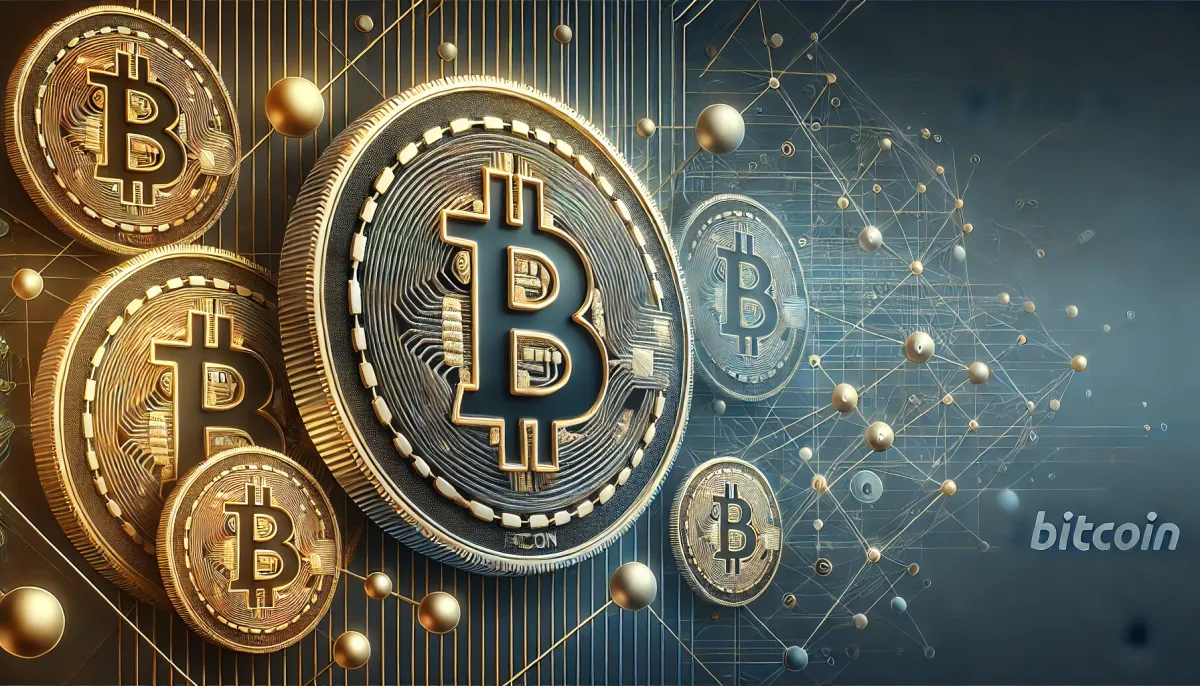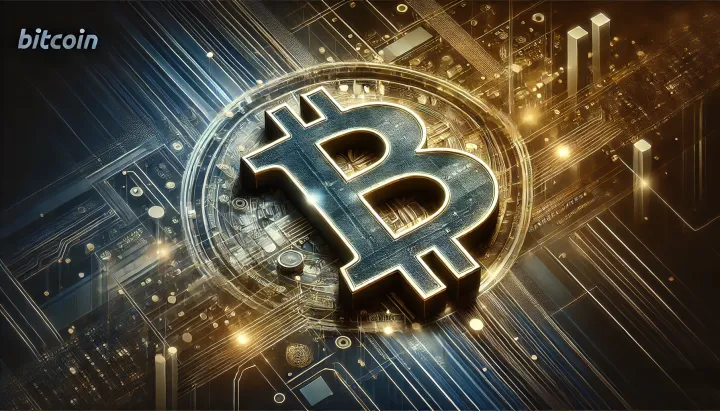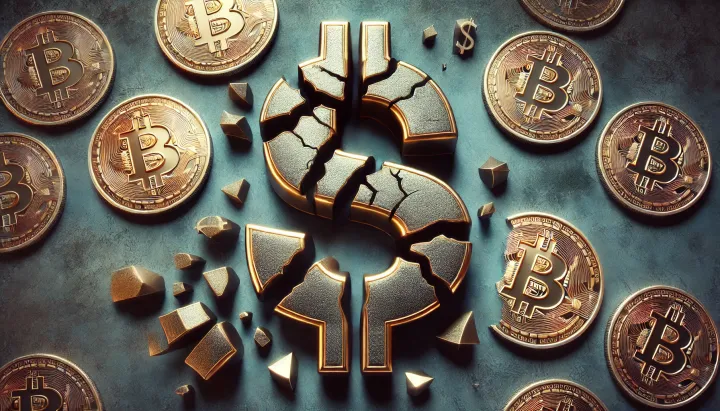Bitcoin Savings: A New Paradigm
The April 10, 2025 episode of Bitcoin for Millennials featuring Rajat Soni highlights how traditional fiat-based saving methods erode purchasing power, while Bitcoin offers a decentralized, self-custody alternative with limited counterparty risk.

- My 'briefing notes' summarize the content of podcast episodes; they do not reflect my own views.
- They contain (1) a summary of podcast content, (2) potential information gaps, and (3) some speculative views on wider Bitcoin implications.
- Pay attention to broadcast dates (I often summarize older episodes)
- Some episodes I summarize may be sponsored: don't trust, verify, if the information you are looking for is to be used for decision-making.
Summary
The April 10, 2025 episode of Bitcoin for Millennials featuring Rajat Soni highlights how traditional fiat-based saving methods erode purchasing power, while Bitcoin offers a decentralized, self-custody alternative with limited counterparty risk. The discussion emphasizes the need for financial education to navigate volatility and harness Bitcoin’s fixed supply benefits. Overall, the episode calls for a critical reexamination of established wealth-building practices.
Take-Home Messages
- Wealth Preservation Challenge: Traditional savings in fiat currency erode value over time due to continuous debasement.
- Self-Custody Imperative: Bitcoin enables true ownership by eliminating intermediary control, though it requires rigorous security practices.
- Decentralized Advantage: Bitcoin’s fixed supply and transparency counteract the wealth extraction inherent in conventional financial systems.
- Market Volatility Management: Long-term holding and thorough education are essential to mitigate Bitcoin’s price fluctuations.
- Regulatory and Educational Needs: Enhancing investor literacy and clarifying policy implications are key to sustainable Bitcoin adoption.
Overview
Rajat Soni explains that traditional wealth-building methods - relying on stocks, real estate, bonds, and gold - are undermined by the perpetual devaluation of fiat currency. He outlines how conventional systems obscure real value through layers of counterparty risk and fee extraction. The conversation argues that these complexities often serve as barriers to genuine wealth accumulation.
Soni contrasts this approach with Bitcoin’s straightforward, decentralized model that offers a fixed supply and enables true self-custody. He emphasizes that while Bitcoin simplifies asset ownership, it demands personal responsibility and a robust understanding of its mechanics. This juxtaposition aims to highlight Bitcoin’s potential to disrupt entrenched financial paradigms.
The dialogue also addresses the pitfalls of conventional financing, such as over-leveraging and regulatory uncertainties, which cumulatively erode long-term value. By comparing these systemic issues with Bitcoin’s inherent deflationary characteristics, Soni builds a case for adopting Bitcoin as a superior store of value. His insights underscore the need for a mindset shift towards proactive financial autonomy.
Ultimately, the episode encourages listeners to transition from the comfort of traditional savings toward an informed embrace of Bitcoin. The conversation stresses ongoing learning as essential for managing risk and seizing the opportunities afforded by decentralized finance. Soni’s analysis serves as a call to critically assess and, if warranted, reallocate assets in favor of Bitcoin’s promising framework.
Stakeholder Perspectives
- Traditional Investors: Cautious about the volatility and new responsibilities of self-custody, they face challenges in reassessing established asset classes.
- Bitcoin Advocates: Enthusiastic about its potential to disrupt wealth extraction, they support a transition to decentralized savings despite inherent risks.
- Financial Institutions: Likely to resist disruptive models, they remain focused on conventional fee-based systems while monitoring regulatory shifts.
- Regulators and Policymakers: Concerned with preserving market stability, they are tasked with framing policies that balance innovation and consumer protection.
- General Public: Often influenced by complex narratives, many may require improved financial education to appreciate Bitcoin’s advantages over fiat systems.
Implications and Future Outlook
The discussion reinforces that the current fiat-based system inherently diminishes wealth through continuous debasement, prompting a reassessment of traditional savings methods. Bitcoin’s decentralized, fixed supply model offers a viable countermeasure to these systemic flaws. In the long run, expanding financial literacy will be critical to achieving a smoother transition from legacy systems.
Market participants might increasingly gravitate toward Bitcoin as a stable store of value when conventional assets fail to protect purchasing power. This shift is expected to foster a more transparent financial environment where asset ownership is directly controlled by individuals. The transformation could ultimately prompt broader market realignments and innovation in investment strategies.
However, the path to adoption is not without challenges, including the need to manage Bitcoin’s volatility and ensure secure self-custody practices. As the ecosystem matures, regulatory clarity and enhanced investor education will play pivotal roles in mitigating these risks. The trajectory outlined in the episode suggests that embracing Bitcoin may redefine both individual wealth management and systemic economic structures.
Some Key Information Gaps
- How can frameworks be established to compare and quantify counterparty risk between Bitcoin and conventional assets? This question is critical for assessing the security benefits of decentralized, self-custodial systems versus traditional intermediated assets.
- How can Bitcoin’s decentralized model address wealth extraction practices inherent in legacy financial institutions? Understanding this dynamic is essential to validate Bitcoin’s role in countering systemic inefficiencies.
- How can investors effectively manage Bitcoin’s inherent volatility to maintain a stable long-term portfolio? Clarifying risk mitigation strategies is key to ensuring that Bitcoin’s advantages translate into reliable wealth preservation.
- What targeted educational initiatives can bridge the knowledge gap regarding Bitcoin’s technical and economic fundamentals? Enhancing investor literacy is pivotal for informed decision-making and optimized asset allocation.
- How might evolving taxation and regulatory policies impact the relative attractiveness of Bitcoin compared to traditional assets? This inquiry addresses the broader fiscal environment affecting long-term investment strategies.
Broader Implications for Bitcoin
Financial Sovereignty
Bitcoin’s decentralized nature challenges the monopolistic control of traditional financial institutions by restoring individual ownership and reducing reliance on intermediaries. This shift empowers users to manage wealth without external oversight, promoting greater personal financial freedom. Over time, enhanced self-custody could lead to significant alterations in personal and institutional asset management.
Regulatory Evolution
The inherent transparency and fixed supply of Bitcoin are likely to prompt a reevaluation of existing regulatory frameworks. Policymakers may need to create new guidelines that balance consumer protection with innovation in decentralized finance. Such adaptations could drive more competitive and resilient financial systems on a global scale.
Market Disruption
By offering a deflationary alternative to fiat currency, Bitcoin introduces a fundamentally different dynamic to traditional wealth-building. Its predictable issuance challenges conventional inflationary models and may encourage a reconfiguration of asset allocation strategies. This potential disruption could catalyze a broader shift in global financial markets.



Comments ()